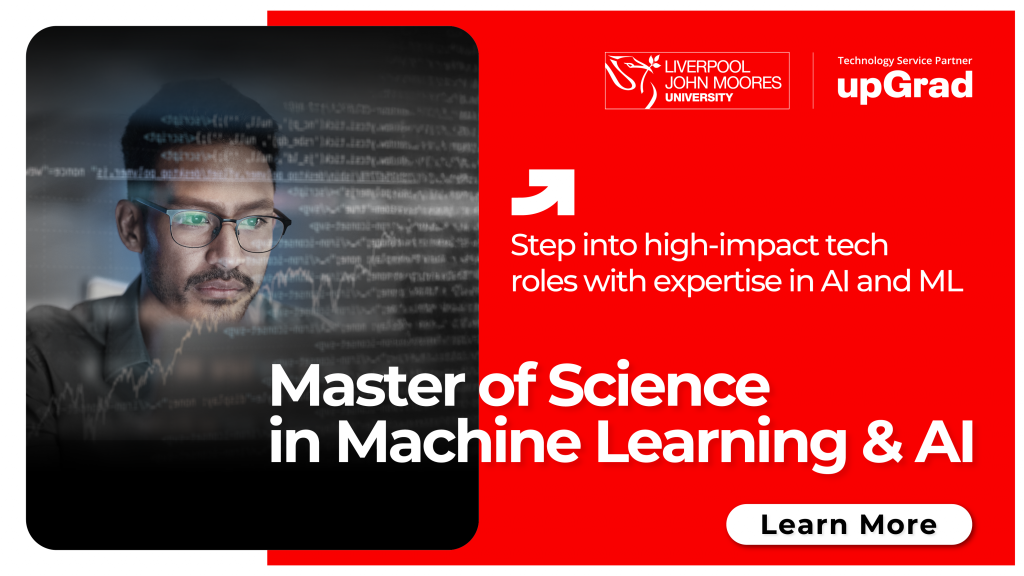With the rise of tools like ChatGPT and Midjourney, the demand for a generative AI expert has skyrocketed, especially in innovation-driven hubs like Singapore. In Singapore, AI career opportunities have grown by 45% year-on-year, according to LinkedIn’s Jobs on the Rise 2024 report. Whether you’re a student, developer, or professional looking to upskill, understanding the right career pathways and educational credentials can help you break into this high-impact domain. Let’s explore how you can become a generative AI expert.
Take your skills to the next level — Explore Machine Learning Certification Singapore
Generative AI Expert: Skills & Career Pathways
To become a generative AI expert, mastering a range of interdisciplinary skills is key. These competencies help you transition into high-impact roles and stay competitive in the evolving AI career landscape. Below is a breakdown of essential skill areas, why each matters, and where they can lead you.
| Skill Area | Why It Matters | Career Path |
|---|---|---|
| Machine Learning and Deep Learning | Core of generative AI; powers models like GANs and Transformers. |
|
| Programming and Tooling | Enables model development, tuning, and automation workflows. |
|
| Data Handling and Statistics | Ensures data quality, fairness, and model accuracy. |
|
| Deployment and MLOps | Moves AI models from research to real-world applications. |
|
| Prompt and Context Engineering | Essential for optimising generative model outputs. |
|
| Ethics and Domain Acumen | Promotes responsible, compliant, and industry-aligned AI solutions. |
|
| Generative Model Expertise | Specialisation in models unique to GenAI workflows. |
|
Machine Learning & Deep Learning
These are the foundations of generative AI, powering models such as GANs, VAEs, and Transformers. As a generative AI expert, strong ML/DL skills enable you to create intelligent systems that can learn, generate, and adapt, which is key to landing advanced artificial intelligence jobs.
Also Read: AI Career Opportunities in Singapore : A Guide to Thriving in Tech
Programming & Tooling
Proficiency in Python, TensorFlow, PyTorch, and APIs is critical for building and fine-tuning generative models. Solid tooling knowledge enables artificial intelligence specialists to deploy scalable solutions and automate processes across various industries.
Data Handling & Statistics
From data cleaning to statistical modelling, handling data effectively ensures your models are accurate and bias-free. It’s a must-have skill for any artificial intelligence expert working with large datasets in real-world scenarios.
Deployment & MLOps
Understanding MLOps helps you transition from experimentation to production smoothly. It enables long-term AI solution management, crucial for roles in enterprise environments and high-impact AI career paths. This skill is especially valued by companies hiring for artificial intelligence jobs that require model reliability and scalability.

Prompt & Context Engineering
Unique to generative AI, this skill involves crafting inputs that guide models like GPT to deliver relevant outputs. Mastering it can fast-track your career as a Prompt Engineer or generative AI expert. As generative tools expand, this emerging field is becoming a core strength for future-ready artificial intelligence specialists.
Ethics & Domain Acumen
With AI shaping critical decisions, ethical reasoning and domain-specific knowledge are non-negotiable. It ensures that artificial intelligence specialists build responsible, context-aware solutions across various sectors, including healthcare, finance, and education.
Generative Model Expertise
Deep knowledge of generative models helps you innovate with text, image, code, or audio generation. This is the core expertise that defines a top-tier generative AI expert, opening doors to advanced AI education programs and high-demand artificial intelligence jobs.
Also Read: How AI is Transforming Singapore’s Healthcare Industry
Education Paths & Credentials That Matter
To become an expert in artificial intelligence, your educational foundation should combine theoretical knowledge with practical, real-world applications. While degrees in computer science or data science are valuable, they’re just one part of the journey. Employers hiring for top artificial intelligence jobs seek candidates with proven skills and a commitment to lifelong learning.
- Professional certifications in AI and ML: These signal specialised knowledge and are often recognised by employers hiring for artificial intelligence jobs.
- Intensive bootcamps with project work: Bootcamps provide fast, practical training and help build a portfolio essential for becoming an artificial intelligence expert.
- Hands-on Research Portfolios: Demonstrating applied research shows depth of understanding and innovation in real-world AI problems.
- Internships or Co-Ops: Work experience in AI teams adds credibility and gives insights into industry practices.
- Contributions to Open-source AI Tools: Active involvement reflects collaboration, coding skills, and engagement with the broader AI community.
- Community Engagement: Participating in hackathons and AI forums showcases initiative and keeps you updated on evolving trends, which are crucial for artificial intelligence specialists.
Also Read: Risks and Challenges of Using Generative AI in Singapore
Fast-track Your Journey with upGrad’s Generative AI Programs
Boost your AI career with upGrad’s online generative AI courses, offered in collaboration with globally recognised universities and institutions. As a trusted online learning platform, upGrad connects you to industry-aligned programs featuring hands-on projects, expert mentorship, and flexible learning formats. Whether you’re starting or upskilling, these curated courses can help you become a generative AI expert and stay competitive in the fast-evolving tech landscape.
Explore these online data science and generative AI courses through upGrad in Singapore!
- Executive Diploma in Machine Learning and AI from IIT Bangalore
- Master of Science in Machine Learning & AI from Liverpool John Moores University
🎓 Explore Our Top-Rated Courses in Singapore
Take the next step in your career with industry-relevant online courses designed for working professionals in Singapore.
FAQs on How to Become a Generative AI Expert
Q: What roles qualify as a Generative AI expert?
Ans: A generative AI expert typically works in roles such as:
- AI Research Scientist
- Machine Learning Engineer
- Applied AI Specialist
- Generative Model Developer
Q: Do you need a PhD to become a GenAI specialist?
Ans: No, a PhD is not mandatory to build a successful AI career. While research roles may prefer doctoral degrees, many artificial intelligence experts come from backgrounds in engineering, computer science, or data science, with hands-on project experience and credible certifications in generative AI.
Q: Which programming languages and tools are essential?
Ans: Key languages include Python, R, and JavaScript, while popular tools and libraries include TensorFlow, PyTorch, Hugging Face Transformers, LangChain, and OpenAI APIs. A generative AI expert should also be familiar with cloud platforms (AWS, GCP, Azure) and version control tools like Git.
Q: Do employers recognize GenAI certifications?
Ans: Yes, reputed artificial intelligence specialists and hiring managers value certifications from credible platforms, especially those offering real-world projects and industry mentorship. Recognised credentials can significantly improve your chances in competitive artificial intelligence jobs.
Q: What support does upGrad offer for job placement in GenAI?
Ans: upGrad provides robust career support through 1:1 mentorship, interview preparation, resume building, and access to a vast employer network. Their industry-aligned courses help learners become generative AI experts ready for high-growth roles in Singapore and globally.
































